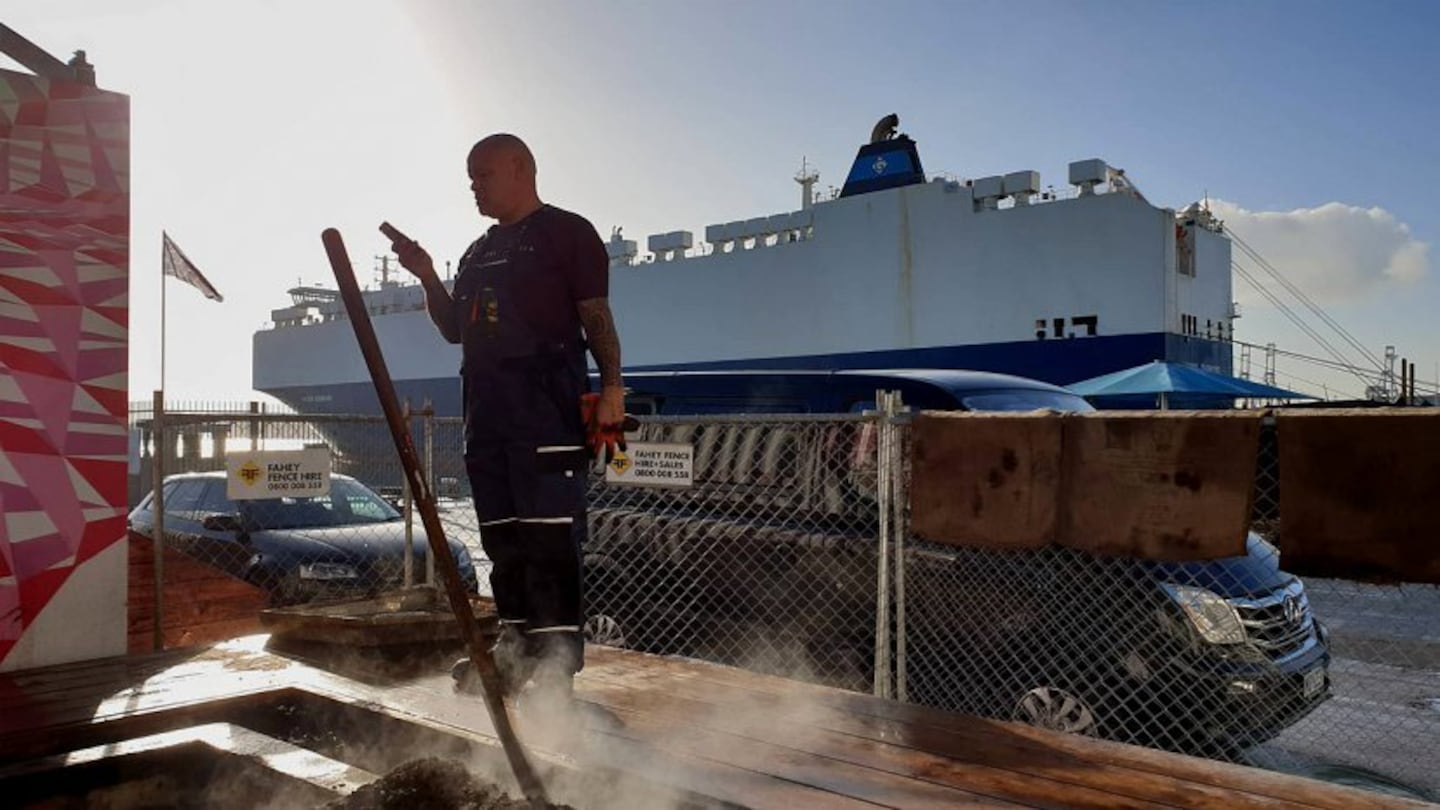It's early morning and Rewi Spraggon is getting ready to pull up the hāngī surrounded by the hustle and bustle of downtown Auckland.
Spraggon, hāngī master at the Māori Kitchen on Auckland's waterfront says, "I'm fully awake now...the dream is done- to have a traditional hāngī on the waterfront of Te Waitematā."
Like his ancestors, the knowledge of hāngī is passed down for his and future generation's benefit.
"These rocks are from my grandfather so they're about 100 years old. Some are from Te Kūiti, Ihenga and Motutapu, we go all over to get the best stones...it's about connecting the nation and whakapapa, that's the main thing. I know every rock in this oven."
So what's so special about this food? Well, for one you don't peel the potatoes and kūmara and two, the firewood is mānuka.
It can take an hour to three hours to cook kai in hāngī depending on the size of the meal.
"It's like your oven at home is how long it takes to cook, there is no difference. Two pits feed 500 people. Or 500 Māori, or 1,500 Chinese!" laughs Spraggon.
Spraggon's main goal is to get this wharekai concept across the nation, with Te Waipounamu and Te Taitokerau in his sights.
He now sells off charcoal to make money to pay for the firewood that heats the stones and cooks the hāngī. It is important for him that hāngī experts go back home to their people.
Spraggon says, "In each and every tribe there is an expert in hāngī and this practice is being lost so we must teach our kids and grandkids how to make a real hāngī."

